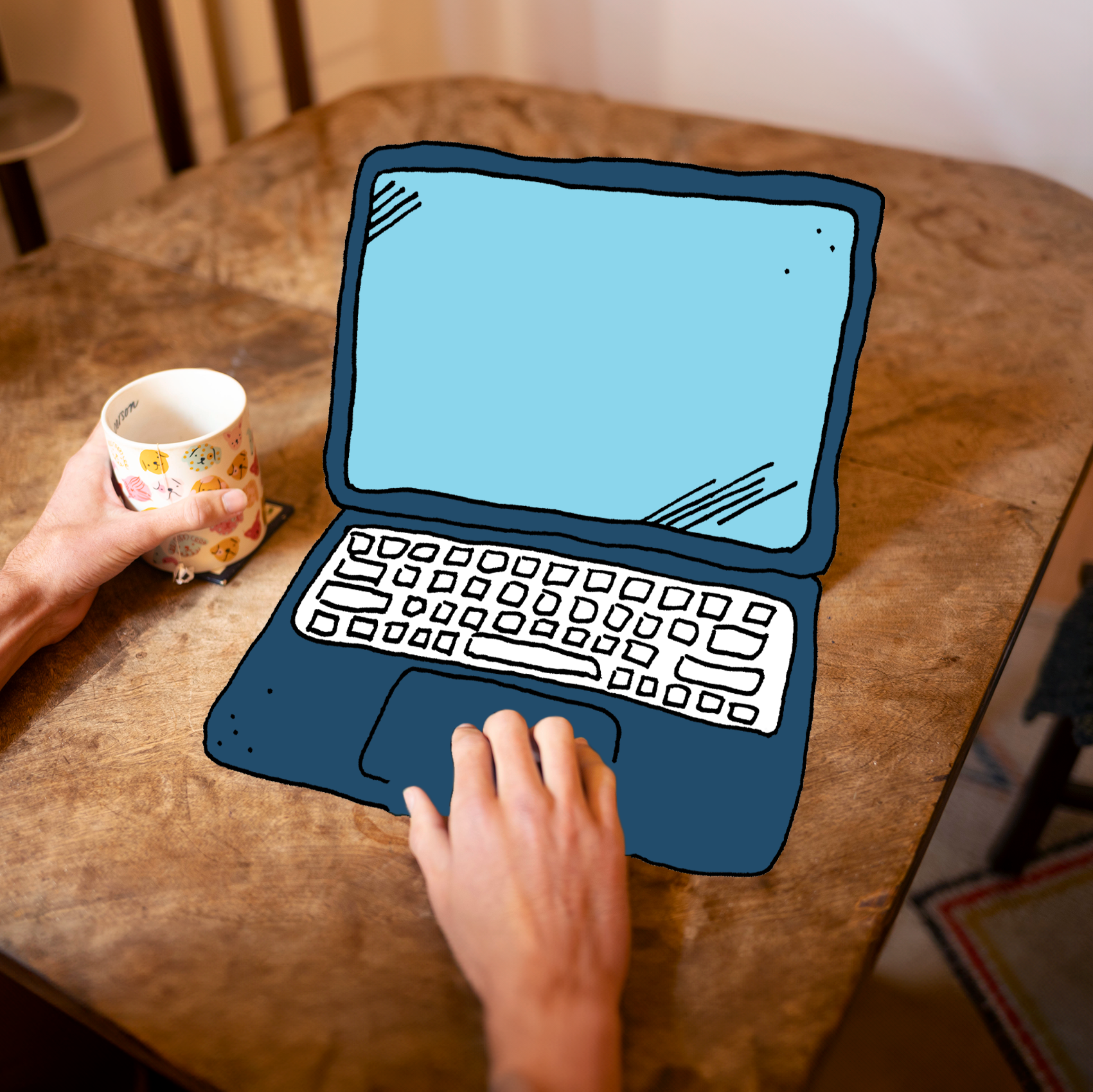
meet our families
Cash is just one of many vital supports Bay Area families need to break the cycle of homelessness
for good.

a father’s day story
Guaranteed Basic Income is helping me be the dad I always wanted to be
“My daughter is almost four years old, and in February, I took her to see Paw Patrol Live, a ‘stage show for kids of all ages.’ Nothing could be more true; I’m not sure who had more fun that day, her or me. I missed out on the chance to do things like that for my son when he was her age, and for the past few years, I couldn’t afford to take her either. Now I’m getting to do things with both of my kids that I didn’t have access to when I was young, and it’s healing something for all of us.”

It All Adds Up is open to Bay Area families who have recently experienced homelessness, receive services from Compass Family Services or Hamilton Families, and are in the final three months of their housing subsidy. More than 70% of families enrolled are headed by single moms of color with children under age five.

Enough to start a family tradition
“I was born and raised in San Francisco. My mom worked at SF General Hospital and I’m the middle child of three sisters. I was working for a security company and living with my mom when my son was born. I knew I needed to find a place of my own. Hamilton helped me get on my feet. The flexible money I’m getting means I feel more secure and I’m able to start new traditions for our family – like cooking together in our very own kitchen. I want my kids to have stability, to go to college, and this makes me feel like that is possible.”
—Deanna

Going back to school
“I went to a trade school to become a pharmacy tech. I was working at Walgreens on Parnassus when I found out I was pregnant. We ended up living in my car. We would go to the 24-hour gym and wash up. Hamilton helped me get a housing voucher, diapers, and food. Now we live in a two-bedroom apartment in Bay Point - I’m in a program for the next eight months to learn software development. $1,000 a month for the next year to help us get through - toiletries, bills, diapers, rent - I didn’t know something like this existed for families in San Francisco.”
—Sarah

Pizza and a night at the arcade
“I am 22 years old; my son is four. We were staying in a hotel for about three or four months while we were on the waiting list for housing. Then Compass called and said, ‘We have a spot for you. Come check it out, see what it looks like.’ We were there about seven months before I had a good job where I got culinary training—you get paid while you earn your certificate. We qualified for a 12-month housing subsidy and got our own place. It’s a quiet, nice area, everything is close by. We can walk. There’s a playground out front. With $1,000 a month, I could pay my bills and have the room to look for a career where I can use my culinary skills, maybe even take my son for pizza and a night at the arcade.”
—ayalla

We all have a role to play.
Together, we can help families achieve housing stability.

Preparing for a transformed future
“I grew up in Harlem in the 1970s. I literally watched my mother count out our rent every month to take down to the Housing Authority, and if somebody had handed her extra cash with no questions asked, it would have changed our whole life. Black and brown people don't often have access to the resources that allow us to create wealth we can pass on to our children. Guaranteed basic income is a very material way that we can go about breaking that cycle and helping families prepare for a transformed future.”
—kyriell noon, chief executive officer, hamilton families
No more nibbling at the edges
“Five years ago, we committed $1 billion to help address the Bay Area's housing shortage and a critical part of that work has been cash transfer. There are a lot of folks nibbling at the edges of what this idea could be. Housing stipends, rental assistance. Matched savings accounts. We thought: let's just go full force. Particularly when it comes to family homelessness—with kids actively experiencing the trauma of housing instability—there is nothing more urgent than this.”
—adrian schurr, regional giving lead, google.org

Not a cliff, a soft landing
“A randomized control trial specifically testing how cash assistance impacts housing stability for families with children is new, and the fact that this research is designed to have the statistical power to inform policy is powerful. Where there might otherwise be a cliff when housing assistance ends, this approach aims to create a soft landing.”
—Martha galvez, NYU furman center housing solutions lab executive director
Instead of asking, now I’m giving
“We are offering access to this pilot to all families exiting our rapid re-housing program — last month we offered it to 17 families, and 17 families said yes. So far, the majority of transactions have been to purchase food. In addition, families often need help paying for car repairs, driving classes, legal support (especially for those seeking asylum), dental expenses, traffic tickets, even funeral expenses, particularly during the pandemic. This gives families room to breathe. With GBI, we get to give, no hoops to jump through and no strings attached.”
—Helen haggerson, impact analyst, Hamilton Families

If it’s Compass, I trust it
"Some families are concerned GBI might impact their other benefits, but what I hear a lot is ‘if it’s through Compass, I trust it.’ When families enroll, they don’t know if they’ll be receiving $50 a month or $1,000. I thought that might be a deterrent but so many people said, ‘Even if I get the $50, it will help the next person get $1,000, and even $50 would help.’ The potential impact of a randomized control trial on families and the sector is huge. My hope is that this will help families achieve stability and reduce the cost of homelessness for the city of San Francisco.”
—Regina vera estrada, impact analyst, Compass Family Services
The data is what moves me
“Homelessness really negatively affects children. To me, it’s a very high priority that families get taken care of and don’t slide into worse situations. I’m an alumnus of MIT and supporter of J-PAL. If they are setting up the study, I believe in it. It’s not that we are pushing stability; we are allowing for it, families should decide what works best for them. My personal opinion is that 12 months is too short. This is how we can influence policy in the U.S. and protect our kids and make sure they are in an environment where they can thrive, rather than getting lost in the system.”
—Sayuri sharper, Donor











